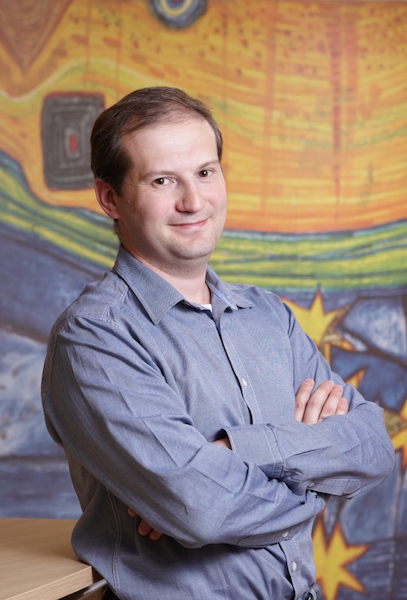How professionals work. Ivan Shumovsky, Head of Infrastructure Solutions, CROC
 The heading "How Professionals Work" continues to acquaint the readers of "Megamind" with the working habits of various specialists in the IT market.
The heading "How Professionals Work" continues to acquaint the readers of "Megamind" with the working habits of various specialists in the IT market.Ivan Ishumovsky from Tashkent. The first IT specialty: "Computer Operator" was obtained at the end of the TLU named after H.Z. Kalanova in Tashkent. Later he studied at the Moscow Aviation Institute with a degree in systems engineering. In 2013, he attended the Mini-MBA courses at KROK'OK Corporate University.
He joined CROC in 2004 as a system engineer, in 2005 he became a technical manager, and in 2008 he moved to the position of a resource manager (translated as commonly understood, he was the head of a group of specialists). In 2012, this role was supplemented by the duties of the head of infrastructure solutions.
Current Location:
Moscow Russian Federation
')
Current place of work:
I have been working for CROC for almost 12 years now. The last few years I am the head of the direction of infrastructure solutions.
One word that best describes how you work:
With love
How many hours a day do you work?
Usually from 12 to 16 hours.
Current mobile device:
Samsung Galaxy S4
Current computer:
Dell Latitude XT3, what is called a TabletPC
Without any applications, programs, utilities you can not live?
From the standard - Microsoft (Excel, Outlook, Word, Visio), Google (Chrome, Keep, Translate, Maps, Music), Yandex (Navigator, Transport and Taxi), Also used to working with Evernote - for notes, MindManager - for drawing mindmaps (you can "mental cards"), including for projects. From corporate - corporate Jive social network, in it and the joint work on documents, and thematic forums, and access to all the main applications of the company. Very handy thing.
Which life hack helps you save time?
It is very important to switch from work to something else from time to time. It can be tea drinking with colleagues, production gymnastics, reading news and Facebook feeds - lately I have been using this social network more and more for working contacts and as a source of partner news. Now I look at the theory that it is necessary to divide the day into equal intervals of work and rest, this contributes to an increase in efficiency. It turns out that for this there is even a special application - Pomodroido.
What kind of to-do manager do you use?
Everything is simple - I don't use a notebook with colored pens and “flags” in Outlook.
What do you listen when you work?
Music, recordings of professional speeches in related areas, plus external, or KROKovsky webinars. We hold up to several webinars per month, sometimes it's interesting to listen to colleagues from other departments.
What are you reading now?
"Work taxis", the author Laszlo Bok talks about the principles of organizing work in Google.
Which book from the last read was remembered the most?
I recently read Lost by Lawrence Gonzalez. This is a book about human behavior in emergency situations. It is very interesting to draw a parallel to more realistic project management situations in our country or business in a crisis.
Do you use e-readers or prefer paper books?
And the paper version, and in electronic form. There is no special “reader”, I read either on a laptop or on a smartphone.
How long do you sleep?
On average, 6-7 hours.
Are you an owl or a lark?
I’m definitely a morning person, but that doesn’t mean that I don’t like to sleep.
How do you have breakfast?
"Oatmeal, sir!", In the sense of breakfast I usually eat porridge, some fruit and tea.
How do you spend your time on the way to work / from work?
If I go by public transport, then I read or just meditate. If in the car, I listen to radio, music or information programs.
What advice you have ever been given can you convey to others?
- Do not stop in the development process, because "there is no limit to perfection." If you think that you already “know everything”, i.e. he has mastered his specialization sufficiently, then, firstly, this is hardly the case, and secondly, it is possible and necessary to master the related sciences and specializations. IT in this regard is a very convenient profession.
- And, of course, in any case the “positive emotional attitude” is important. Therefore, "save and multiply positive emotions."
Source: https://habr.com/ru/post/294438/
All Articles